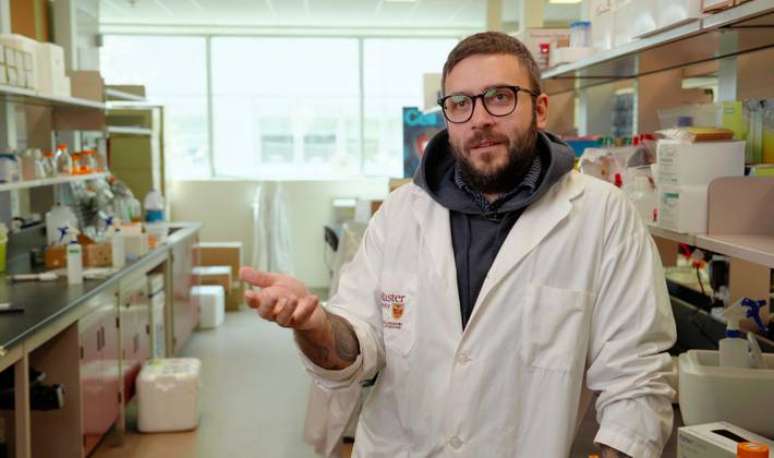The drug is in an experimental stage and will undergo further tests before being made available; the study is from the university of canada
Scientists at McMaster University in Canada have discovered a new antibiotic able to kill one deadly species of superbug with the help of artificial intelligence. The experimental drug, called “abaucin,” will now undergo safety tests before being used in people. This is the first evidence that AI can be used in rapid drug development, say the researchers.
To the superbugs represent a challenge for medicine. They are evolutions of species that develop resistance to commonly used antibiotics by doctors and therefore require constant studies to create new drugs.
According to the World Health Organization (WHO), more than one million people are estimated to die each year from infections that resist treatment with antibiotics worldwide.
In this study, the researchers focused on the species Acinetobacter baumanniidescribed by WHO as one of the three most “critical” superbugs.. Capable of harvesting DNA from other species of bacteria in the environment, including antibiotic resistance genes, it is resistant to nearly all antibiotics.
Jonathan Stokes, one of the leaders of the study, describes the superbug as “public enemy number one”. This is because, in addition to being extremely resistant, it is also very common in hospitals and nursing homes.
It usually survives on surfaces and medical equipment e it infects wounds, causing pneumonia and leading to serious health conditions.
html[data-range=”xlarge”] figure image img.img-6f0924285f3fece5a916d636d09d34117zc9626i { width: 774px; height: 458px; }HTML[data-range=”large”] figure image img.img-6f0924285f3fece5a916d636d09d34117zc9626i { width: 548px; height: 324px; }HTML[data-range=”small”] figure image img.img-6f0924285f3fece5a916d636d09d34117zc9626i, html[data-range=”medium”] figure image img.img-6f0924285f3fece5a916d636d09d34117zc9626i { width: 564px; height: 334px; }
Artificial intelligence at the service of medicine
In the Canadian university’s study, artificial intelligence helped reduce thousands of potential chemicals to a set that could be tested in the laboratory against the superbug. The results were published in the scientific journal Chemical biology of nature.
The scientists used known drugs with an exact chemical structure in manual tests to see which ones would be able to delay or kill the disease. Acinetobacter baumannii. Then, they fed this information into the AI platform so it could learn the chemical characteristics of drugs that could attack the bacteria.
The technology was then screened against a list of 6,680 compounds whose efficacy was unknown. In an hour and a half it reached a roster of about 240.
Finally, the researchers tested the substances selected by the artificial intelligence and found nine potential antibiotics. One of them, abaucin, has proven to be extremely powerful in laboratory tests – it is capable of treat infected wounds in mice and kill superbug samples.
The next steps, according to Stokes, are to improve the drug in the laboratory and conduct clinical trials. The expectation is that in 2030 the antibiotic will be available to be prescribed to patients.
Future
Tests have shown that abaucin has no effect on other species of bacteria, only on Acinetobacter baumannii. The finding surprised McMaster scientists, as many antibiotics kill bacteria indiscriminately.
Upside, the researchers believe this precision of abaucin will make it harder for the superbug to develop resistance to the drug and could lead to fewer side effects.
In addition to the discovery of the new antibiotic, the experiment showed that artificial intelligence can do it, according to the researchers greatly accelerate the discovery of new drugs in general.
“AI approaches to drug discovery are here to stay and will continue to be refined,” says James J. Collins, professor of medical engineering and science at MIT, in a McMaster publication.
“We know that algorithmic models work, now it’s a question of widely adopting these methods to discover new antibiotics more efficiently and economically”, completes the expert.
Source: Terra
Ben Stock is a lifestyle journalist and author at Gossipify. He writes about topics such as health, wellness, travel, food and home decor. He provides practical advice and inspiration to improve well-being, keeps readers up to date with latest lifestyle news and trends, known for his engaging writing style, in-depth analysis and unique perspectives.








